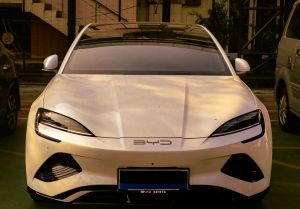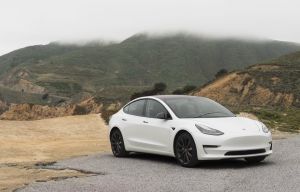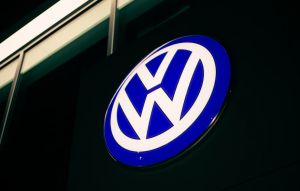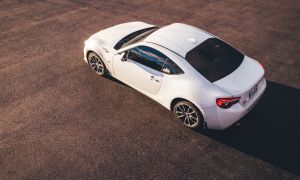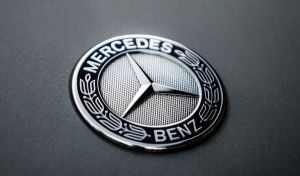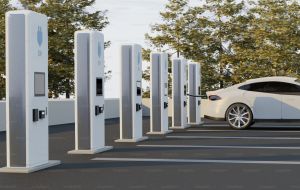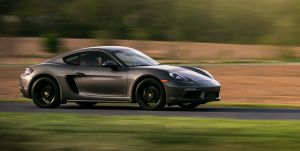Test Owner
BYD’s high-end electric vehicle brand, Denza, is officially entering the European market this April. The brand will make its debut at Brera Design Week 2025 in Milan, running from April 7 to 13, where it will serve as the main sponsor of Fuorisalone 2025. “We’re bringing the future of premium electric mobility to Europe. Stay inspired, stay ahead,” Denza announced on social media.
From Struggles to Success: Denza’s Transformation
Originally established in 2011 as a joint venture between BYD and Mercedes-Benz, Denza struggled to gain traction in its early years. The partnership, with each company holding a 50% stake and a registered capital of 7.76 billion yuan (about $1 billion), failed to achieve significant sales. By December 2021, Mercedes-Benz exited the joint venture, and BYD took a controlling 90% stake, later acquiring full ownership in 2024.
With BYD at the helm, Denza was repositioned as a premium EV brand, leading to a rapid expansion. The company launched five new models: the D9 minivan, N7 and N8 SUVs, Z9 sedan, and Z9 GT estate. In 2024 alone, Denza sold 125,674 vehicles in China and began exporting to Europe.
A New Strategy for the European Market
Currently, BYD operates three sub-brands: Denza, Fang Cheng Bao, and Yangwang. However, for Europe, BYD plans to consolidate its luxury offerings under the Denza name. As part of this strategy, the Fang Cheng Bao Bao 5 SUV will be introduced to the European market under the Denza brand.
One of the key models confirmed for Europe is the Denza Z9 GT estate, positioned as a direct competitor to the Porsche Panamera. Designed by former Audi chief designer Wolfgang Egger, the Z9 GT is priced at 334,800 yuan ($46,100) for the plug-in hybrid version and 354,800 yuan ($48,800) for the all-electric model in China.
Denza’s Arrival: A Game-Changer for the EV Market?
With its official European launch just around the corner, Denza aims to disrupt the premium EV market with its cutting-edge design, technology, and competitive pricing. As BYD continues its global expansion, Denza’s arrival in Europe could mark a significant shift in the luxury electric vehicle landscape.
Tesla has officially joined BMW and major Chinese automakers in a legal battle against EU-imposed tariffs on electric vehicles imported from China. The lawsuit, filed in the General Court of the European Union (CJEU), signals an escalating dispute between Tesla CEO Elon Musk and European regulators over trade policies affecting the fast-growing EV market.
The legal challenge, confirmed on Jan. 27, follows the European Commission’s decision to impose tariffs on Chinese-made EVs in October 2024 after an anti-subsidy investigation. Despite Tesla receiving the lowest tariff rate at 7.8%, the company is pushing back against the broader policy, which impacts not only Chinese automakers but also European brands manufacturing in China, such as BMW.
Why Did the EU Impose Tariffs on Chinese EVs?
The European Commission launched an investigation into Chinese EV manufacturers, alleging that they benefited from unfair government subsidies. These included:
- Soft loans from Chinese state banks
- Favorable land deals for factory development
- Subsidies for suppliers to lower production costs
These advantages, according to EU officials, allowed Chinese-made EVs to be sold at artificially low prices, making it difficult for European automakers to compete.
As a result, the EU introduced additional tariffs ranging from 7.8% for Tesla to 35.3% for other Chinese automakers, on top of the existing 10% import tariff applied to foreign carmakers.
Tesla’s Stake in the Dispute
Tesla’s Shanghai Gigafactory is a key production hub for its Model 3, which is exported to Europe. In 2023, electric vehicles made in China accounted for 20% of all EV sales in the EU, with Tesla alone making up 28% of those imports, according to the European Federation for Transport and Environment.
While Tesla’s tariff rate is lower than its competitors, the company argues that the import duties create unnecessary trade barriers and increase costs for European consumers. BMW, BYD, Geely, SAIC, and the China Chamber of Commerce for Import and Export of Machinery and Electronic Products (CCCME) have also filed lawsuits against the EU’s decision.
How Tesla and Automakers Are Adapting
In response to the tariffs, Tesla has adjusted its production and supply strategy:
- Berlin Gigafactory Focus: Tesla is ramping up local production of Model Y in Germany to reduce reliance on Chinese imports.
- Shanghai Exports Shift: Tesla continues to export Model 3s from its Shanghai factory, though higher tariffs could impact pricing and demand.
Other automakers are also reconsidering their supply chains. BMW, which produces a significant number of vehicles in China, may need to adjust its pricing strategy for the European market. Chinese EV makers, like BYD and Geely, are exploring options to expand production in Europe to avoid tariffs altogether.
What’s Next?
Tesla’s lawsuit is now before the General Court of the European Union, the second-highest court in the EU. The legal proceedings are expected to last around 18 months, after which the ruling can be appealed to the European Court of Justice.
The European Commission has defended its decision, maintaining that the tariffs are necessary to protect European manufacturers from unfair competition. A spokesperson for the Commission stated that the EU is prepared to argue its case in court.
This legal battle has far-reaching implications for Tesla, Chinese automakers, and global trade relations. If Tesla and other challengers succeed, it could force Brussels to reconsider its tariff policies, potentially reshaping the EV market in Europe. However, if the EU upholds the tariffs, automakers may have to accelerate investment in European production facilities or explore alternative markets.
With rising tensions between the EU, China, and the U.S., the outcome of this case could be a defining moment in the global EV industry.
Chinese car manufacturers are poised to make a notable impact on the UK car market in the coming years, offering a wave of more affordable electric vehicles (EVs) that could challenge established European brands.
According to the 2023 FN50 leasing companies’ survey, industry leaders were optimistic about these new entrants gaining market share from higher-priced European rivals.
However, this outlook could shift dramatically if the UK Government imposes stringent import tariffs on Chinese-built vehicles—a measure already adopted by the United States and European Union to protect legacy carmakers in their regions.
EU Leads the Way with Tariffs
The European Commission’s investigation revealed that Chinese car brands have benefited from unfair government subsidies in Beijing, enabling them to keep prices artificially low. As a result, the EU has implemented tariffs of up to 45% on new EVs imported from China for the next five years.
China, which has been targeting an aggressive expansion into the European market to bolster its growing automotive sector, may need to rethink its strategy if these tariffs stifle sales. One possible outcome could see China redirect its focus toward the UK market, especially since the UK Government has yet to clarify its stance on similar tariffs.
In October, British trade minister Jonathan Reynolds stated that no complaints had been raised by UK businesses regarding Chinese EV imports, suggesting the UK was not immediately following the EU or US example.
Impact on the UK Fleet Market
The arrival of Chinese carmakers in the UK is expected to significantly influence the EV sector, according to Ian Turner, chief sales officer at Alphabet.
“The entrance of new Chinese OEMs into the UK market will undoubtedly reshape the fleet landscape, particularly in the EV segment,” he says. “Their focus on affordability is likely to intensify competition and disrupt traditional market dynamics.”
Turner highlights the potential benefits of this competition: “Chinese manufacturers excel at producing cost-effective vehicles, which could drive down prices and make EVs more accessible to a broader audience. This affordability might accelerate the transition to electrification, benefiting corporate fleets and retail customers alike.”
However, he also acknowledges the challenges: “The possible introduction of import tariffs could alter cost structures and impact fleet decision-making, requiring careful planning around pricing strategies.”
Strategic Shifts by Chinese Manufacturers
In response to EU tariffs, some Chinese carmakers are already adapting their business strategies. BYD, for example, has announced plans to establish a European production facility to mitigate tariff costs.
Additionally, Chinese OEMs have been forging strategic partnerships with European carmakers, complicating how tariffs might apply. Stellantis, for instance, has invested £1.3 billion to acquire a 20% stake in Leapmotor and launched Leapmotor International, a joint venture focused on exporting, selling, and manufacturing Leapmotor products outside China, starting with Europe.
Aftersales Support Remains a Concern
Despite the growing interest in Chinese EVs, UK leasing companies remain wary about the long-term reliability of these brands, particularly regarding aftersales services.
Rory Mackinnon, Holman’s commercial director, explains: “The entry of Chinese OEMs broadens fleet options, especially in the EV space. However, many of these manufacturers lack robust aftersales networks or reliable parts supply. These factors must be carefully considered when evaluating vehicle acquisitions.”
Concerns are heightened by the experience with Fisker, an American newcomer that entered the UK market with promise but filed for bankruptcy in 2024. With limited aftersales infrastructure in place, Fisker owners now face significant maintenance challenges and no warranty support—serving as a cautionary tale for fleets considering less-established brands.
SAIC and Volkswagen Extend Joint Venture to 2040
On the 40th anniversary of SAIC Volkswagen, SAIC Motor and the Volkswagen Group signed an agreement in Shanghai to extend their joint venture (JV) until 2040. This marks a significant milestone in their long-term partnership, highlighting their commitment to the Chinese market, the Volkswagen Group confirmed on Thursday.
Strengthening Collaboration Amid Challenges
The extended agreement reflects the growing trend of China-European joint ventures, despite challenges such as the European Union’s (EU) protectionist tariffs on Chinese electric vehicles (EVs). Experts believe this partnership showcases the potential for win-win collaboration between China and Europe in the evolving auto industry.
Ralf Brandstätter, a Volkswagen AG Board Member for China, emphasized the strategic importance of the partnership. “We are now raising our collaboration with SAIC to the next level, focusing on product innovation, production efficiency, and decarbonization. By 2030, SAIC Volkswagen will launch 18 new models, with 15 exclusively developed for the Chinese market,” Brandstätter said.
Brandstätter also reaffirmed China’s role as a cornerstone of Volkswagen’s global strategy. He noted the company’s commitment to increasing investments in the region, in partnership with Chinese collaborators.
Broader China-European Automotive Collaborations
Despite the EU’s tariff measures on Chinese EVs, partnerships between Chinese and European automakers are flourishing. For example:
- Chery Automobile and Spain’s Ebro-EV Motors launched their JV in Barcelona, celebrating the production of the s700 SUV. Signed in April, their agreement aims to create 1,250 jobs and produce 150,000 vehicles annually by 2029, according to Xinhua News Agency.
- Leapmotor International, a JV between Chinese automaker Leapmotor and global auto giant Stellantis, began European sales operations in September. The JV plans to expand into markets in the Middle East, Africa, Asia-Pacific, and South America later this year.
These collaborations highlight the complementary strengths of Chinese and European enterprises as they navigate an evolving market and expand product offerings to meet consumer demands.
Market Challenges and Opportunities
Zhou Mi, a senior research fellow at the Chinese Academy of International Trade and Economic Cooperation, noted that such collaborations align with mutual interests and are driven by market dynamics. However, the EU’s decision to impose extra tariffs on China-made EVs could harm global supply chain cooperation.
Jian Junbo, Deputy Director of the Center for China-Europe Relations at Fudan University, warned that these tariffs might:
- Strain trade relationships between China and the EU.
- Hinder the global EV industry’s technological innovation.
- Slow down EV adoption in the EU, potentially weakening European automakers’ competitive edge.
While the EU announced the tariffs on October 29, it also indicated plans to continue price commitment consultations with China, Xinhua reported.
The extension of SAIC Volkswagen’s JV to 2040 reflects the enduring partnership between Chinese and European automakers, despite political and economic challenges. As collaborations like Chery-Ebro and Leapmotor-Stellantis demonstrate, shared strengths and complementary goals continue to drive the global auto industry forward, ensuring innovation and progress in a competitive market.
China has called on its auto manufacturers to pause significant investments in European Union (EU) countries that support the recent imposition of tariffs on Chinese electric vehicles (EVs), according to sources cited by Reuters.
The directive comes in response to new EU tariffs, which can reach up to 45.3%, following a comprehensive year-long investigation. At an October 10 meeting with the Ministry of Commerce, major Chinese automakers such as BYD, SAIC, and Geely were advised to suspend major investment activities, including plans for building factories, in countries that align with the tariff policies.
This strategic measure by the Chinese government aims to strengthen its position in ongoing discussions with the EU about alternative solutions to the tariff issue. Beijing hopes to maintain the flow of EV exports to Europe, a crucial market that accounted for over 40% of China’s EV shipments in 2023. With existing 100% tariffs on Chinese-made EVs in the US and Canada, a significant drop in European exports could exacerbate domestic overproduction problems faced by Chinese automakers.
While nations such as Italy and France have expressed interest in Chinese auto investments, they have also raised concerns about the influx of affordable Chinese EVs and their impact on European automakers.
State-owned SAIC is currently exploring potential sites for an EV manufacturing plant in Europe and is preparing to launch a parts distribution center in France. Simultaneously, Italy is in discussions with automakers such as Chery and Dongfeng Motors for potential investments. BYD, another key player, is constructing a facility in Hungary and considering relocating its European headquarters there to cut costs.
This week, EU and Chinese officials have agreed to continue technical discussions to find alternative solutions to the EV tariffs. Despite eight rounds of dialogue between the European Commission and Chinese officials, “significant remaining gaps” in their positions persist.
Mercedes-Benz Group's CEO, Ola Källenius, is in China this week, seeking to expand local technology partnerships that could help reverse the company's declining sales in its most important market. Källenius, who has made several trips to China this year, is joined by other members of Mercedes’ management and supervisory board, according to sources familiar with the matter. The key objective of the visit is to make Mercedes' new electric vehicles (EVs) more appealing to Chinese consumers.
Targeting the Next-Generation Electric Vehicle Launch in 2025
According to sources, the new partnerships aim to enhance Mercedes' next-generation EVs, particularly for the 2025 launch of its battery-only CLA, the first model based on the company's new electric vehicle platform. This launch is seen as critical in the battle to regain market share from Chinese automakers, which have been outperforming international brands in the EV segment. The focus is on collaborating with local companies that provide key in-car technologies, such as mapping and entertainment systems, to tailor the CLA and other models specifically to Chinese consumer preferences.
A Mercedes representative in China confirmed that staff from headquarters would be visiting but declined to provide additional details.
Navigating Challenges in China’s Competitive Market
China remains Mercedes-Benz’s largest market, contributing 36% of its global sales in 2023. However, the company is under increasing pressure to regain momentum amid a stagnant Chinese economy and intensified competition from domestic automakers. Last week, Mercedes followed rival BMW Group in cutting its full-year profit outlook, citing weaker demand for luxury cars in China.
To counter these challenges, Källenius has launched a sales offensive with new products and localized innovations. Last month, Mercedes-Benz announced a collaboration with ByteDance Ltd., the parent company of TikTok, to integrate generative AI applications into its in-car systems for the Chinese market, enhancing the appeal of its vehicles with cutting-edge technology.
Strengthening Strategic Partnerships
Källenius may also meet with Li Shufu, Mercedes’ top shareholder and the founder of Zhejiang Geely Holding Group Co., during his visit. Geely is a crucial partner for Mercedes in China. Meanwhile, Mercedes-Benz continues to deepen its ties with other local partners. In his previous visit, Källenius announced a joint investment of 14 billion yuan ($1.99 billion) with long-time partner BAIC Motor Corp. to produce electric and light-commercial vehicles specifically designed for Chinese consumers.
These models will include an extended-wheelbase version of the electric CLA, a GLE crossover, and a new luxury electric multi-purpose vehicle. These China-focused offerings are a crucial part of Mercedes’ strategy to compete more effectively with local automakers who have been dominating the EV market with competitive pricing and faster innovation cycles.
A Broader Trend of Localization
Mercedes-Benz isn't the only German automaker accelerating its localization efforts in China. Volkswagen Group has also intensified its focus on faster production and development in China, optimizing costs by leaning heavily on local supply chains. VW has partnered with Chinese EV startup Xpeng Inc. to roll out new products in China, while also investing in new joint ventures with local suppliers like Horizon Robotics, reinforcing its commitment to staying competitive in the world’s largest EV market.
As competition heats up, these localization strategies are essential for traditional carmakers to retain a foothold and drive future growth in China’s rapidly evolving automotive industry.
BYD Acquires German Importer Amid Lagging Sales
BYD is taking control of its German distributor, Hedin Electric Mobility, as the automaker's leadership grows increasingly frustrated with sluggish sales in Europe's largest market. Germany is crucial to BYD's strategy of capturing a 5% share of the European auto market in the midterm. The company has set a goal of selling 120,000 cars in Germany by 2026, but as of July, it had only registered 1,432 vehicles, representing just 0.1% of the market, according to the KBA motor transport authority.
Despite a significant marketing boost as the automotive sponsor for the European soccer championship held in Germany this summer, BYD’s sales in the country have remained disappointingly low.
Hedin Electric Mobility has been BYD's general importer in Germany since 2022, supplying cars and parts to around 30 BYD dealerships nationwide. By acquiring Hedin's business, BYD aims to streamline its operations, allowing it to sell directly to dealers and gain more control over pricing and vehicle availability.
Although BYD is taking over the distribution, Hedin's German dealerships will continue to operate as BYD partners. Additionally, Hedin will maintain its role as BYD's importer and distributor in Sweden. The financial terms of the deal, which is pending regulatory approval, have not been disclosed.
This move comes as Chinese EV manufacturers, including BYD and SAIC's MG brand, face challenges expanding in Europe. These include weakening demand and new tariffs on EVs imported from China. In July, registrations of Chinese EVs in Europe dropped, with Chinese brands capturing just 9.9% of the overall EV market.
Chinese automotive brands secured an unprecedented 11% share of the European battery electric vehicle (BEV) market in June, marking a significant milestone. This surge in registrations occurred as manufacturers rushed to beat the European Union’s newly imposed tariffs on electric vehicles, which came into effect earlier this month.
Leading the charge was SAIC Motor, which made substantial shipments of its MG4 hatchback to European dealerships. Vehicles registered before July 5th were exempt from the new tariffs, allowing them to be sold without the additional duties on imported EVs. In total, Chinese brands registered over 23,000 BEVs across Europe in June—a record pretty high.
This 72% month-on-month increase in registrations outpaced the overall growth in European EV registrations, which saw a more modest rise. It's worth noting that Chinese-manufactured vehicles from Western companies like Volvo, BMW, and Tesla are also subject to these new duties.
The sustainability of these volume gains remains uncertain as the impact of the EU tariffs takes hold in the coming months. Under the new regulations, SAIC faces an additional 38% tariff, while BYD will incur an extra 17% on top of the existing 10% customs duty.
Both European and Chinese automakers are scrambling to establish local EV manufacturing in Europe to bypass these tariffs, with concerns growing that the situation could escalate into a trade conflict between Beijing and Brussels.
While SAIC led the influx of Chinese-branded imports, about 40% of the MG4s registered in June were self-registrations by dealers, a trend that Dataforce's Head of Product Gabriel Juhas described as "not a very healthy growth." SAIC has been offering attractive leasing deals, including a two-for-one promotion for the MG4 in Germany, where EV sales have struggled.
In contrast, BYD, the world’s largest EV manufacturer, showed signs of progress. A marketing campaign centered around the Euro Cup Championships in Germany resonated well with consumers, according to Julian Litzinger, a Dataforce analyst.
Another key factor driving the European EV market in June was the introduction of new incentives in Italy, which helped to double the country’s battery-electric sales compared to the previous year. The Italian government allocated about €200 million in subsidies for new EVs, which were exhausted in less than nine hours. Around 60% of the funds were utilized by families, with the remainder claimed by companies.
This surge in sales propelled Italy, previously lagging in EV adoption, into the top six of the regional market, which includes EU member states as well as Norway, Switzerland, and the UK.
China Trade Dispute Threatens German Automakers
A trade war between Europe and China could slam the brakes on German car companies. The European Union's decision to impose tariffs on Chinese electric vehicles has angered China, which is expected to retaliate with counter-tariffs. This could be a major blow to German automakers, who rely heavily on China for sales. In 2023, nearly a third of their cars were sold there.
The danger zone for Germany lies in its luxury car market. While most vehicles sold in China are manufactured locally,many high-end models with bigger profit margins are shipped in from Germany. This makes them prime targets for retaliation. Porsche, for instance, exports all its cars to China, leaving it particularly vulnerable.
Analysts predict that counter-tariffs could focus on large-engine vehicles, a specialty of German brands. This could significantly reduce profits for German automakers, with estimates ranging from 4% to 10%. Some brands, like Porsche,might be able to raise prices to compensate, but this strategy has its limits.
The impact varies across German car companies. Porsche faces the biggest risk with a quarter of its sales coming from China and all its cars being imported. Volkswagen is less exposed, with only a small portion of its China sales relying on imports. However, any boycotts of German goods would still hurt the company. Mercedes and BMW also have a significant presence in China, with a sizable chunk of their sales coming from imported vehicles.
Other European automakers are not immune, but the threat seems less severe. Volvo and Stellantis have a smaller footprint in China. Ferrari, with a smaller market share in China, might be able to offset tariffs by raising prices on its luxury cars. Renault's operations in China are limited.
The situation remains uncertain. The nature of China's retaliation is yet to be determined, leaving German automakers in a wait-and-see mode, hoping for a peaceful resolution to the trade dispute.
COPY OF CHINESE AUTOMAKERS PREPARE TO CONQUER EUROPEAN EV MARKET WITH AGGRESSIVE EXPANSION
Chinese EV Makers Plan Major Market Push
Starting in the 1980s, European automakers dominated the Chinese market, reaping millions in sales with minimal local competition. Now, these companies must defend their home ground from a surge of advanced Chinese electric vehicles.
Chinese automotive giants BYD, Chery, and Great Wall Motor are planning to launch around 20 new models over the next five years. These companies are heavily investing in sales and marketing to secure a significant share of the European market, according to industry experts and insiders.
Strategic Market Penetration
Having spent years gaining market share from foreign competitors in China, the world's largest automotive market, Chinese EV manufacturers are now focusing on Europe. They have been studying European car buyers, hiring industry veterans, and selecting knowledgeable distributors to prepare for this move.
BYD and Chery have announced plans to manufacture cars in Europe. Chery will start production at Nissan’s former factory in Barcelona this year, while BYD aims to open its first European passenger car factory in Szeged, Hungary, by 2026.
Building Brand Awareness and Infrastructure
Chinese automakers are employing various strategies to break into the European market, from sponsoring major sporting events to expanding dealership networks and improving service operations to enhance resale values, which are crucial for fleet buyers.
Despite their current low sales volumes in Europe, Chinese brands like MG, owned by the state-owned SAIC, are gaining recognition. However, Great Wall recently announced it would close its European headquarters in Germany, though it remains committed to its launch plans in the region.
Rapid Expansion and Competitive Pricing
The influx of China-built imports into Europe is accelerating, with BYD tripling its European sales to 15,000 vehicles in 2023. BYD has introduced six electric models in Europe, rolling them out across 20 countries, and plans additional launches in the UK this year. Great Wall aims to release a new model annually in Europe over the next five years, while Chery plans to launch eight SUV models under its Omoda and Jaecoo brands in the next two years.
Learning and Adapting to Local Markets
Chinese EV makers have adapted their strategies based on extensive market research. They are designing models specifically for European consumers and leveraging substantial government support, which allows them to focus on long-term growth rather than immediate profits.
Chinese automakers enjoy cost advantages due to government subsidies and their dominance in battery minerals refining. In China, a fierce price war has led to extremely competitive EV pricing, alarming automakers in the US and Europe. In response, the US and EU have increased tariffs on Chinese EVs.
Comprehensive Market Strategies
Chinese manufacturers are not just competing on price. They are offering vehicles with high levels of standard equipment and features often sold as extras by Western automakers. Their approach is reminiscent of Japanese automakers' strategies when entering Western markets decades ago.
Chinese companies are focusing on ensuring high safety ratings, robust repair and service operations, and effective distribution networks to enhance resale values. This attention to detail reflects their understanding of the European market, where the total cost of ownership, including maintenance and resale values, is crucial for consumers.
Building a Presence and Consumer Trust
To boost brand recognition, Chinese automakers are investing in social media, event sponsorships, and partnerships with established dealer networks. For instance, BYD is rapidly expanding its dealership network in the UK, aiming for extensive coverage by next summer. Awareness of Chinese cars is growing, with more European consumers considering them as viable options.
BYD’s sponsorship of the Euro 2024 soccer championship, previously held by Volkswagen, is expected to significantly boost brand familiarity. This high-profile presence will showcase BYD's EVs and increase recognition among millions of viewers.

